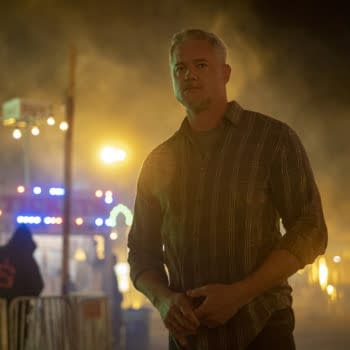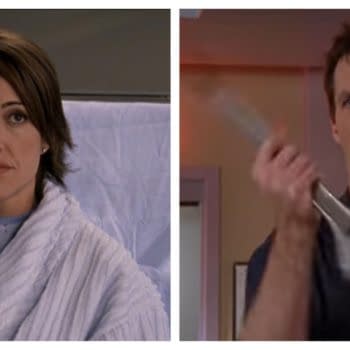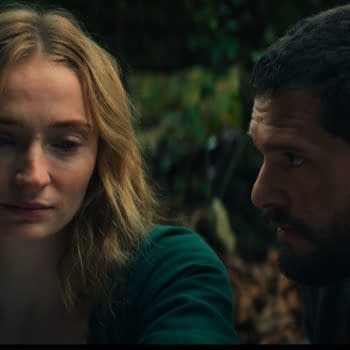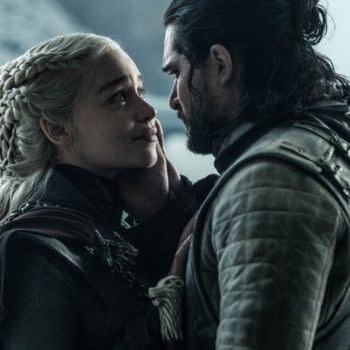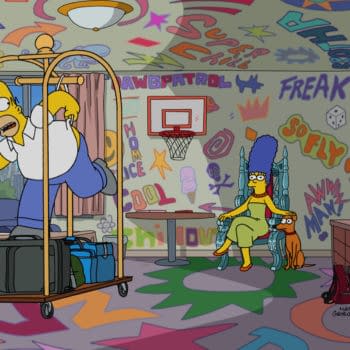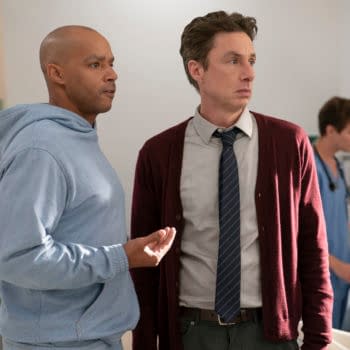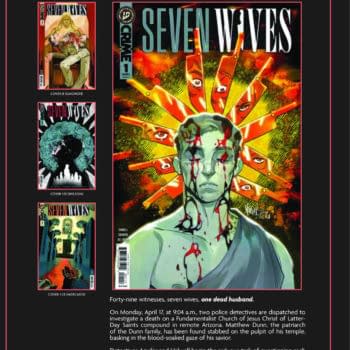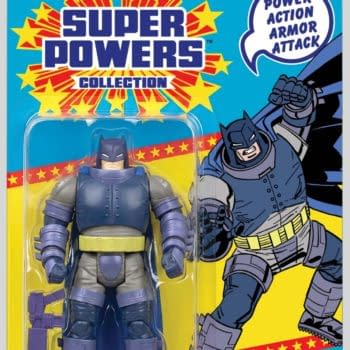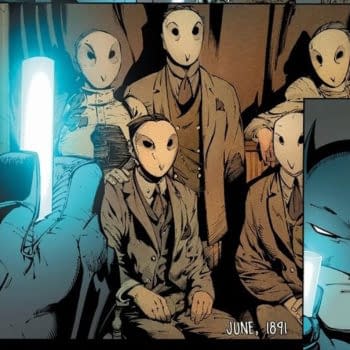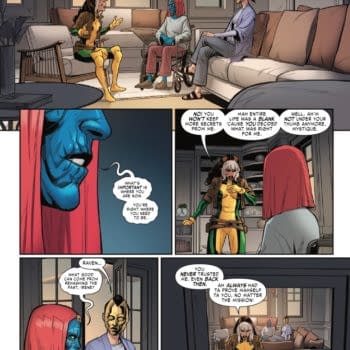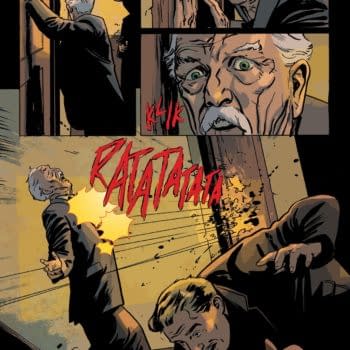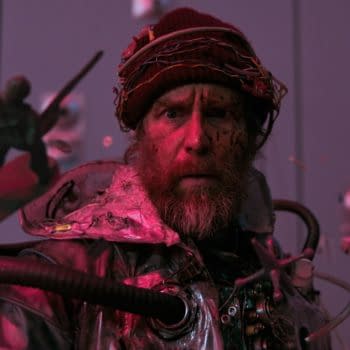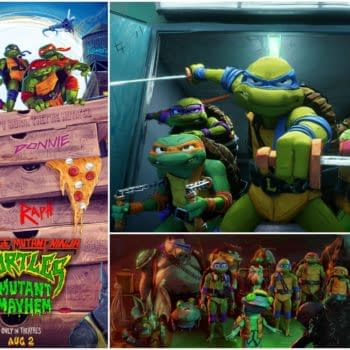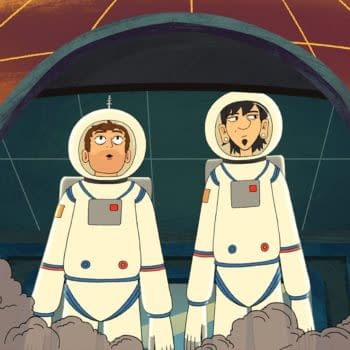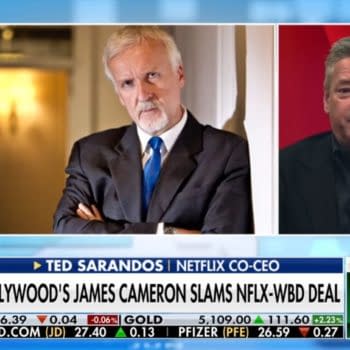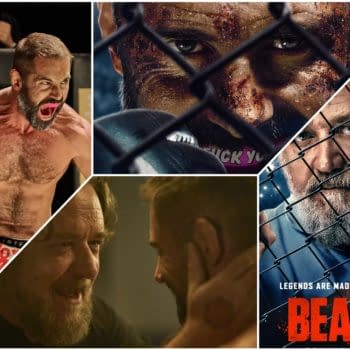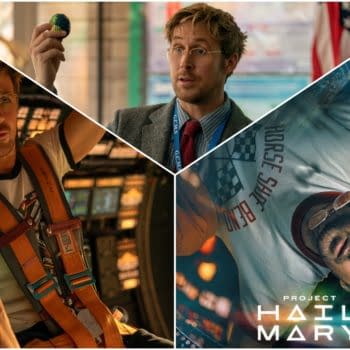Posted in: Comics, Documentary, Exclusive, Interview, Movies | Tagged: guillermo del toro, hellboy, Jim Demonakos, Kevin Konrad Hanna, Mike Mignola: Drawing Monsters, ron perlman
Drawing Monsters: Directors on Mike Mignola Documentary, Hellboy Films
Drawing Monsters directors Jim Demonakos & Kevin Konrad Hanna spoke to us about Mike Mignola's rise in comics and the prominence of Hellboy.
Article Summary
- Directors Jim Demonakos and Kevin Konrad Hanna share insights on creating Mike Mignola: Drawing Monsters.
- Discover creative dynamics and behind-the-scenes stories between Mignola and Guillermo del Toro.
- Uncover why the 2019 Hellboy reboot failed to meet expectations, according to Demonakos and Hanna.
- The team reveals why Hellboy 3 didn't happen and how DVD sales impacted its potential production.
With the release of Ketchup Entertainment's Hellboy: The Crooked Man, the second reboot in the franchise based on the Dark Horse Comic, Hellboy, directors Jim Demonakos and Kevin Konrad Hanna wanted to tell the story of its creator in Mike Mignola: Drawing Monsters. The documentary covers Mignola's rise in the comics industry, his studio, demonstrations, comic book conventions, and the talent behind the first two Guillermo del Toro live-action franchise films, 2004's Hellboy and 2008's Hellboy II: The Golden Army. The two spoke to Bleeding Cool about how they approached making a comic book documentary the way they wanted to see it, if there were any elusive subjects to interview, the misconceptions on why Hellboy 3 wasn't made, and their thoughts on why they feel the 2019 first reboot failed to meet expectations.
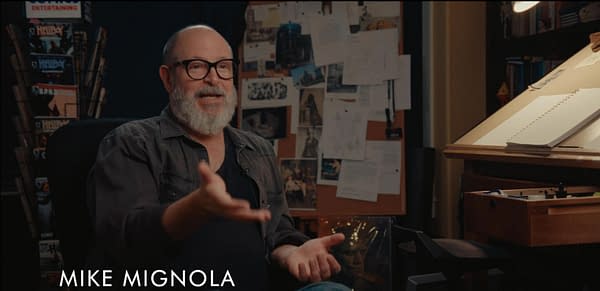
Drawing Monsters: Demonakos and Hanna Reveal What Happened Between Mike Mignola and Guillermo del Toro Creatively, Behind the Scenes.
Bleeding Cool: What was the inspiration behind 'Drawing Monsters' covering Mike Mignola's world and 'Hellboy?'
Demonakos: There weren't many documentaries about comics in a way we wanted to see. Our inspiration for doing this is a lot of people's inspiration, creating a thing that doesn't exist for them. Kevin and I would talk like, "Man, we watch a lot of documentaries. We love the documentary format, but don't see it reflecting our fandom, specifically comics." There are a few comic docs out there. When we first started talking about the projects we wanted to work on, this was essentially like scratching two different itches. One wanted to see more documentaries about comics, and then, we also are huge Mike Mignola fans. We had our peanut butter and jelly heading into this documentary.
Hanna: I wanted secret access to Mike's sketchbooks, comics, and stuff.
Was there anyone you tried to get for the documentary but couldn't?
Hanna: The short answer is, "For the most part, no," because Mike is such a beloved figure. If I had just approached people and said, "Hey, can I interview you?" They probably would have said "No." Jim, with his connection to the comic book industry, then everybody wanted to come up and say how passionate they are about Mike. Pretty much everybody said yes. There are a couple of…Jim, did you want to talk about it?
Demonakos: From the comic book side, it was nice because we didn't get anybody to say "No" on the comic book, and it was more on, let's call it, "celebrity," and that it was challenging from a scheduling point of view and in no negative way. We reached out and tried to get David Harbour, but he was in the middle of doing 'Black Widow.' It's like, "Okay, well, that's not going to work out," and it didn't work out in our time frame. We mentioned him and used some EPK, but unfortunately, he's not in it. Again, as Kevin said, luckily, most of us wanted the key to the story in the dock, so we were happy.
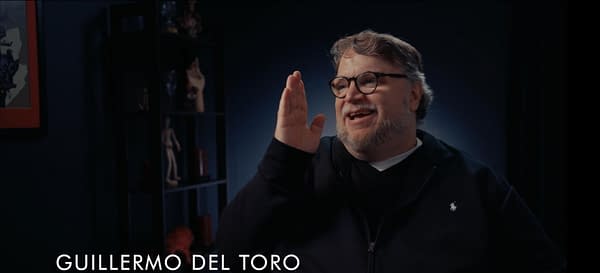
Were you still working when 'Hellboy: The Crooked Man' (2024) was being developed?
Demonakos: No, we have already finished and wrapped the film. Brian Taylor, who directed the new ['Crooked Man'], watched the documentary and gave us a quote for it, but it was after things had already happened, we could include 'The Crooked Man.'
With the original 2004 Guillermo Del Toro film, there were also Rupert Evans and Selma Blair. Was there interest in talking with them since you spoke to Ron [Perlman] and Doug [Jones]?
Hanna: We never touched upon this. I don't think we ever chased them down, and it wasn't out of lack of affection. They would've been great interviews, but we were focused on Mike, his journey, the story of creation, and a lot of the creative collaboration and the creative friction between making Guillermo and that story. There was a point where we didn't want to tack amazing people on to have them in it. It was like, can they add to this story? We didn't spend much time pursuing or looking at them, but I'm sure they would have been great.
There's a stark contrast between the dynamic between Mike Mignola and Guillermo del Toro did creatively together compared to how Mignola worked with Andrew Cosby for the 2019 reboot. I spoke with director Neil Marshall about why he felt it didn't work. He thinks the consensus was it was too close to the comics and not something more friendly for the film. Do you feel like other determining factors maybe don't get discussed?
Demonakos: Are you asking specifically why we think the 2019 reboot didn't work out?
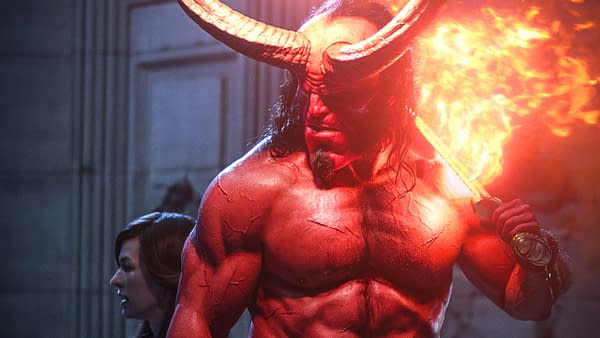
I'm aware of the fans of original actor Ron Perlman since he's largely been synonymous with 'Hellboy.' Given the typical online discourse, did you feel the 2019 film got a fair shot?
Hanna: I'm going to stick my foot in my mouth on this one. Jimmy, you better talk. I respectfully disagree with Mr. Marshall. I'll say, "I think 'The Descent' is a masterpiece!"
Demonakos: I think what happened watching that film is it's not that it was too close to the comics. That's the wrong takeaway because when you look at 'The Crooked Man,' it feels even closer to the comics and looks good. The problem, this is one man's opinion, is they took too many comics and shoved them into that movie. It lacked focus, and it wasn't just one story. It was "a little bit of this, a little bit of that, a little bit of here and there." It could have used a trim from its story roots. The problem wasn't that it was based too much on the comics. It was based on too many comics to work as a film.
Hanna: Jim put it much more elegantly than I was about to say, so thank you for that. 'Hellboy' is often a character about simplicity and beautiful simplicity, from its visual style to its storytelling style. The [2019] film was jam-packed with stuff and ideas. They took 30 years of 'Hellboy' comics and went, "Let's grab this character, this cool thing, this other cool thing, and try to put it all in there. 'Hellboy' is often slow, deliberate horror, or slow deliberate pulp, and not necessarily as bombastic as that film was. With that said, the film had merit. There's stuff in it that worked. There were elements of it that worked well, but as a big cohesive thing, I don't think the del Toro films are the reasons the 2019 film didn't quite work.
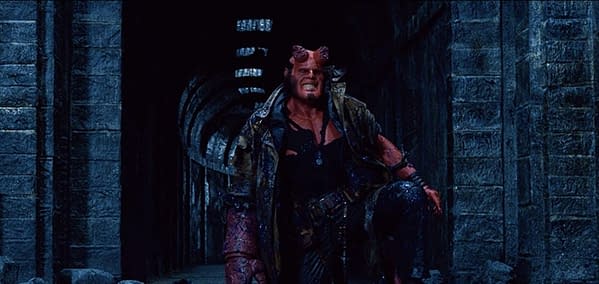
What were the most interesting discoveries while filming this documentary?
Demonakos: In terms of what was interesting to not necessarily put to rest, the reason 'Hellboy 3' didn't happen was because of certain factors like Mike was unhappy, Guillermo didn't want to do it, or Ron wasn't available or whatever. Talking to them clarified for us and, hopefully, the audience where it was like the second movie happened because the first movie made so much money on DVD. By the time the second film came out and went out on DVD, the market already changed.
They didn't make nearly enough money for there to have been a 'Hellboy 3' with the budget needed to create a 'Hellboy 3.' We learned Guillermo is not a person who is going to cut corners or sacrifice, so if he couldn't make 'Hellboy 3' how he wanted to make it, it wasn't going to happen since the studio wouldn't put up the same budget again for him to make that film. That's what led to the demise of that trilogy; it was good for us to discover and get that laid out because it feels like even now, like you were saying in 2019, people are like, "I'd rather have a third Guillermo del Toro movie than this." These are apples and oranges in what the reality of making films is.
Hanna: I'll just add on that because when we asked Mike and Guillermo if they would work together again, both were emphatic yeses. Guillermo said, "I'd work with Mike again in a heartbeat!" The other thing we learned about Guillermo from Ron was Guillermo is a man of vision and won't make it unless he can make it the way it'll be successful, and that's the reason why the 2004 'Hellboy' movie didn't come out sooner, and why he did 'Blade II' (2002) before that was because he wanted to prove Ron should be the star. The studio wasn't initially ready to back Ron as a star, and it took him six-to-seven years of waiting. [Guillermo] was like, "I won't make 'Hellboy' if you can't cast Ron." He built Ron up as a star for the better part of six-to-seven years to make him an action lead. That was inspiring for both of us to take away, "Man, you got to fight for your vision. You got to fight for it!" That's where it's one of the many ways that Mike and Guillermo's paths parallel these are men who fight for their vision, have a strong voice, find their voice, and advocate for it. That's why we love them.
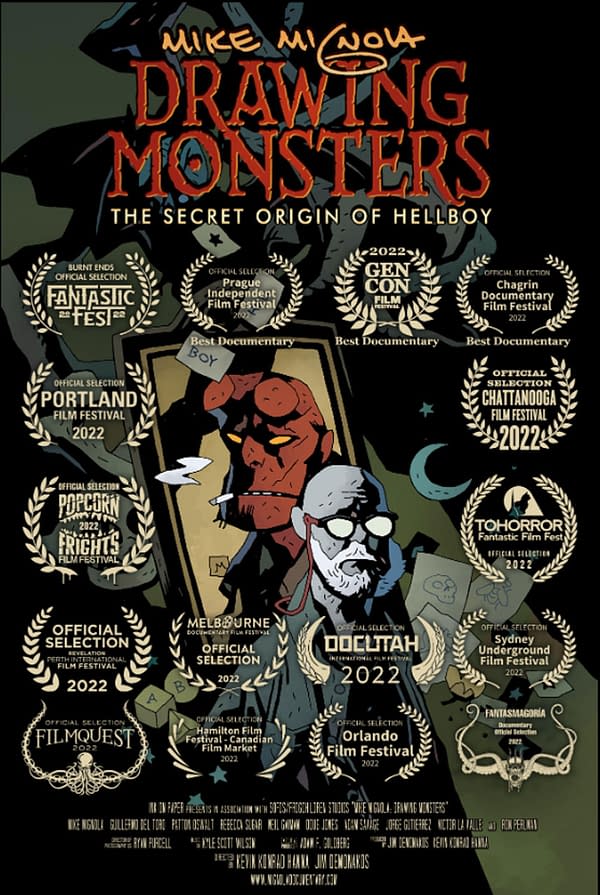
Mike Mignola: Drawing Monsters, which also features del Toro, Mignola, Jones, Perlman, Patton Oswalt, Rebecca Sugar, Adam Savage, Jorge R. Gutiérrez, Chris Prynoski, Victor LaValle, Mike Richardson, and Neil Gaiman, is available on Amazon Prime Video and Apple TV.






